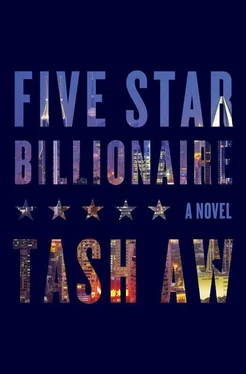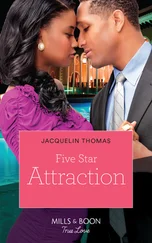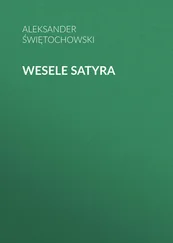If he felt a frisson of excitement, it wasn’t because of his glamorous tour guide but because it was his first proper outing in Shanghai, his first sight of the daytime streets at close quarters, unencumbered by briefcases and folders. If anything, he felt resentful of Zhou X.’s presence; she sat in the car, idly sending messages on her BlackBerry, her only commentary being a recital of a list of projects her agent had sent her. “Wim Wenders — is he famous?” she asked. “I don’t feel like working with him — he sounds boring.”
They stopped outside a tourist-class hotel on a busy thoroughfare lined with midrange shopping brands in what seemed to be a fairly expensive part of town (low occupancy, medium yield: unrealized rental potential) — a strange place to start a tour of Shanghai, he thought, as they walked through a featureless archway into a narrow lane lined first with industrial dustbins and then, farther on, with low brick houses. These were the famous longtang of Shanghai, she explained, the ones foreigners fell in love with — though personally she couldn’t understand why anyone would want to live in a lane house. “Look at them, they’re so primitive and cramped and dark and … old.”
He peered into an open door. In the gloom, he made out a staircase of dark hardwood and a tiled kitchen with a two-ring stove-top cooker. He stepped into the house — its quiet half-light seemed welcoming, irresistible.
“What are you doing?” Zhou X. cried.
But he was already up the stairs, treading across the uneven floorboards, the deep graining of the wood inviting him to bend down and trail his fingers over the smooth worn surface. There were signs of life — pots of scraggly herbs and marigolds, towels draped on banisters, lines of washing strung up across the small square rooms. And yet there was a stillness that settled heavily on the house, as if its inhabitants had recently abandoned it, as if the present was already giving way to the past. The small windows on the landings allowed in little light, but Justin could nonetheless see that there was dust on the surface of some cardboard boxes that lay stacked in the corner of the room and also on the handrails of the staircase. He could not decide whether the house was decaying or living. He retreated and joined his companion outside. In spite of her huge black sunglasses, she was squinting, shielding her face from the sun with her handbag.
“You’re crazy,” she said. “You can’t just go poking your nose into other people’s houses like that.”
Justin looked at her and smiled. “I’ve paid for this, haven’t I? I need to get my money’s worth.”
At his insistence, they drove from longtang to longtang , her SUV cruising through the narrow streets lined with plane trees, the balconies of the old French-style villas occasionally visible over the tops of stone walls. Some of the larger houses had shutters that were tightly closed, and in their gloom these mansions reminded him of the house in which he had grown up, full of silence and shadows and the steady ticking of grandfather clocks. He remembered the hallway and staircase of his family house, the ceiling rising so high that it created a cavelike gloom.
As the car crawled through the traffic, he began to notice the number of people on foot: a group of middle-school kids, spiky-haired and bespectacled in tracksuits, rushing to beat one another to the head of the queue to buy freshly made shengjian , exclaiming gleefully as the cloud of steam billowed from the pan; an elderly couple crossing the road just in front of the car, walking arm in arm, their clothes made from matching brocade and velvet, worn but still elegant; and, at an intersection, about fifty construction workers sitting on the pavement, smoking on their break, their faces tanned and leathery, foreign-looking — Justin could not place where they were from. He wondered why, in the many weeks since arriving, he had not noticed how densely populated the city was. All that time driving around in his limo, he must have been working on spreadsheets or reading reports, he thought.
“You’re so easy to please,” Zhou X. said, tapping away on her phone without looking at him. “All I have to do is show you old houses.”
The driver stopped the car, because Justin had seen a small lane of nondescript houses that seemed derelict at first glance. It was the property developer’s instinct in him that spotted the lane, he thought, for it was barely distinguishable from the dozens of others they had seen and in fact was a great deal less attractive. Tucked behind a row of small fruit and vegetable shops, the low brick houses had not long ago been rendered in cheap concrete and now looked, frankly, ugly: low residential value, ripe for development. Wires sagged along the façades of the buildings, competing for space with lines of washing hung up to dry; a small girl came out of a doorway, carrying a basin of gray-hued water, which she splashed into the street. There was something about the way of life here — living in close quarters, families spilling into one another — that reminded him of the slums not far from where he grew up: hundreds of identical flimsy houses, thousands of lives that seemed to blend into one. Sometimes the houses would catch fire and the entire area would be razed, only to be rebuilt a few months later. He had never known any of the people who lived in that world, and even before he became an adult, the shanties were cleared to make way for a shopping mall.
He’d remembered to bring his little digital camera and began photographing the narrow sunless alley and the shabby shops that surrounded it; as he did so, an old woman emerged from one of the houses, carrying a few plastic bags bulging with clothes. On the LCD screen of his camera she appeared smiling, gap-toothed, spontaneously lifting her bags to the camera as if displaying a trophy.
“Hey, people don’t like you interfering with their lives,” Zhou X. called from inside the car. “Can you hurry up? I’m late for my next appointment.”
For days afterward he looked at the picture of the old woman, even putting it on his laptop so that every time he turned it on she was there, smiling at him. There was something about her thin hair, dyed jet-black and set in tight curls, that reminded him of his grandmother — the attempts at vanity making her seem frailer, not younger. He remembered his grandmother’s room: the chalky smell of thick white face powder and tiger balm interlaced with eau de cologne. He would sit on the bed and watch her undo the curlers from her hair; she liked having him around, liked talking to him, even though he could not understand all of what she said. He must have been no more than five or six, and she was already in her eighties, already weak. And he was surprised by the glassy clarity of these memories, the way they settled insistently on his waking days like a thin, sticky film that he could not shake off. He had never even been close to his grandmother.
With the photo enlarged, he could make out the color of some of the clothes through the translucent plastic bags the old woman was carrying: a jumble of cheap textiles proudly displayed to the beholder. Her cheeks were red and coarse, her remaining teeth badly tea-stained. He wanted to go back to try to find her, maybe take more photographs — and, who knows, on closer inspection (and without a nagging actress on his back) he might have clearer views of those small houses and the neighboring shops. A thought flashed across his mind: Maybe he could restore them, save them from further degradation by thinking of some clever scheme whereby the residents could continue to pay low rent and the shops could be run on a cooperative basis. The entire site would become a model for modern urban dwelling in Asia; young educated people would want to come and live cheek by jowl with old Shanghainese.
Читать дальше
Конец ознакомительного отрывка
Купить книгу


![Scott O’Hara - Five-Star Fugitive [= Border Town Girl]](/books/432138/scott-o-hara-five-thumb.webp)









